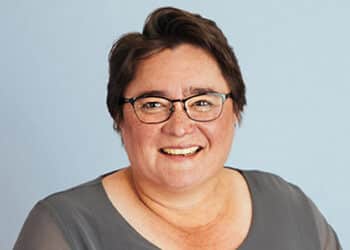We outline below how existing and prospective advisers can meet FASEA’s education standards under the Australian financial services licence (‘AFSL’) regime. Each adviser should consider their own circumstances and decide which pathway is most suitable for them.
What are the pathways for existing advisers?
The Corporations Act 2001 (Cth) broadly defines an existing adviser (referred to as an existing provider in the legislation) as a person who was an authorised adviser under the AFSL regime between 1 January 2016 and 1 January 2019 and is not banned, disqualified or suspended on 1 January 2019.
Existing advisers will need to meet FASEA’s education standards by no later than 1 January 2024, and there are five ways this can be done.
Approved degree pathway
Existing advisers who have completed a FASEA approved graduate diploma qualification or higher will only need to complete an ethics and professionalism bridging course to meet FASEA’s education standards.
The FASEA approved degree list can be found on FASEA’s website and broadly includes graduate diplomas relating to accounting, commerce, business, finance or others that have an emphasis or major in financial planning.
Relevant degree pathway
Existing advisers that have completed a graduate diploma qualification or higher in a related field of study that contains at least eight courses in one or more of FASEA’s designated field of studies (e.g., financial planning, investments, accounting, tax law, finance, etc) and do not have recognition of prior learning (RPL) will need to complete four courses being:
- financial advice regulatory & legal obligations bridging course;
- ethics and professionalism bridging course;
- behavioural finance: client and consumer behaviour, engagement and decision making; and
- a FASEA approved elective unit.
However, where an existing adviser with a relevant degree has completed either an advanced diploma in financial planning or an approved study related to attaining a professional designation they may obtain RPL. Where either of these are the case, existing advisers are only required to complete FASEA’s code of ethics and code monitoring bodies bridging course to complete this pathway.
Other degree pathway
Existing advisers that have completed a graduate diploma qualification or higher in a non-relevant field of study and do not have RPL will need to complete seven courses of study, being:
- Financial advice regulatory & legal obligations bridging course;
- Ethics and professionalism bridging course;
- Behavioural finance: client and consumer behaviour, engagement and decision making; and four related units selected by the existing adviser from a FASEA approved list of electives.
If the existing adviser has RPL such as an advanced diploma in financial planning, approved study related to attaining a professional designation, or certain courses that are related to a designated field of study, the above requirements may be reduced depending on the RPL completed by the existing adviser.
No degree pathway
Existing advisers who have not completed a graduate diploma qualification or higher and do not have RPL will need to complete a graduate diploma consisting of eight courses of study, which include:
- Financial advice regulatory & legal obligations bridging course;
- Ethics and professionalism bridging course;
- Behavioural finance: client and consumer behaviour, engagement and decision making; and
- Five related units selected by the existing adviser from a FASEA approved list of electives.
If the existing adviser has recognised RPL such as an advanced diploma in financial planning and/or approved study related to attaining a professional designation, the above requirements may be reduced.
RPL and professional designations
The Financial Planning Association of Australia has reported that their Certified Financial Planner (CFP) is the first professional designation program in Australia that qualifies for RPL by FASEA. Accordingly, existing advisers who have completed or are undergoing a CFP certification program can use these studies as RPL for the relevant pathway that they are undertaking.
We note that Chartered Accountants Australia and New Zealand (CA) and Certified Practicing Accountants Australia (CPA) have also applied for their relevant programs to be recognised as study related to attaining a professional designation. If approved, advisers who have completed their CA or CPA programs may also soon be eligible to use their studies as RPL.
New entrant pathway
FASEA also allows existing advisers to complete the new entrant pathway to meet its education standards.
What are the pathways for new entrants?
From 1 January 2019, those who do not meet the definition of existing adviser above need to meet FASEA’s education standards in one of two ways if they want to become a licensed adviser under the AFSL regime.
Undergraduate pathway
The first way new entrants can meet the FASEA education standards is by completing a bachelor degree that meets FASEA’s requirements. These degrees typically contain 24 courses and will need to contain the FASEA financial adviser curriculum as part of the education program.
Career changer (postgraduate) pathway
Alternatively, new entrants can complete a graduate diploma or master that typically consists of 8 courses that contains the FASEA financial adviser curriculum as part of the education program to meet the FASEA education standards.
FASEA examination
Apart from meeting the above education standards, existing advisers and new entrants will need to pass a FASEA exam. Existing advisers will need to pass the examination by 1 January 2021 to remain on the register of authorised advisers under the AFSL and new entrants will need to pass the exam during their professional year before they can move to the indirect supervision stage.
The examination will cover three domains of knowledge:
- financial advice regulatory and legal obligations;
- applied ethical and professional reasoning and communication; and
- financial advice construction.
The exam format is as follows:
- There will be at least 70 questions consisting of at least 64 multiple choice questions and at least 6 written response, or case study style, questions.
- The exam will be 3.5 hours including 15 minutes of reading time.
- Marking will be on a pass or fail basis.
Among other things, a person is eligible to sit the exam if the person:
- is an existing adviser or has completed an education pathway and is a provisional adviser;
- is registered for the exam;
- has not sat an exam within three months before registering for the exam (Accordingly, failing the exam precludes a person from registering to re-sit the exam for at least three months); and
- has not breached the registration conditions.
- AFSL licensees
For completeness we note that AFSL licensees cannot authorise an individual to provide financial advice if they have not met FASEA’s education standards and there is an obligation to notify ASIC when an existing adviser has met the relevant standards.
Christian Pakpahan, lawyer and Daniel Butler, director, DBA Lawyers



Discussing with an Adviser under our AFSL who holds an ADFP. So hoepfully seems to have to do 6 subjects and gets credit for 2 subjects as RPL.
[b][/b]But guess what, FARSEA wont confirm with the educators what subjects are not needed out of the 8 subject Graduate Diploma in Financial Planning.
So how on bloody earth is anyone able to start study ?????????
For F##K Sake FARSEA – pull your heads out of your Butts !!!!!!!!!!!!!!!
Safest bet could be to just to get on with it! That’s what I have done. Just knocking off the 8 units….
So…..we have to do the exam before we have to do the education. Ok that makes sense!
Yep the mob at FARSEA are real Smart Noggin’s. 🙄
We get to do an exam before doing the study and yes the exam is still not ready to start doing. Should be ready by about 24th Dec 2020.
And over 2 years into the process FARSEA are still assessing RPL – so many advisers can’t start the study until they know if they have all their RPL approved.
But wait, even if they had RPL finalised there are no bridging courses ready to do. Bridging courses expected about 24th Dec 2023.
Absolute Govt morons bumbling along in their bureaucratic Disneyland so out of depth of reality.